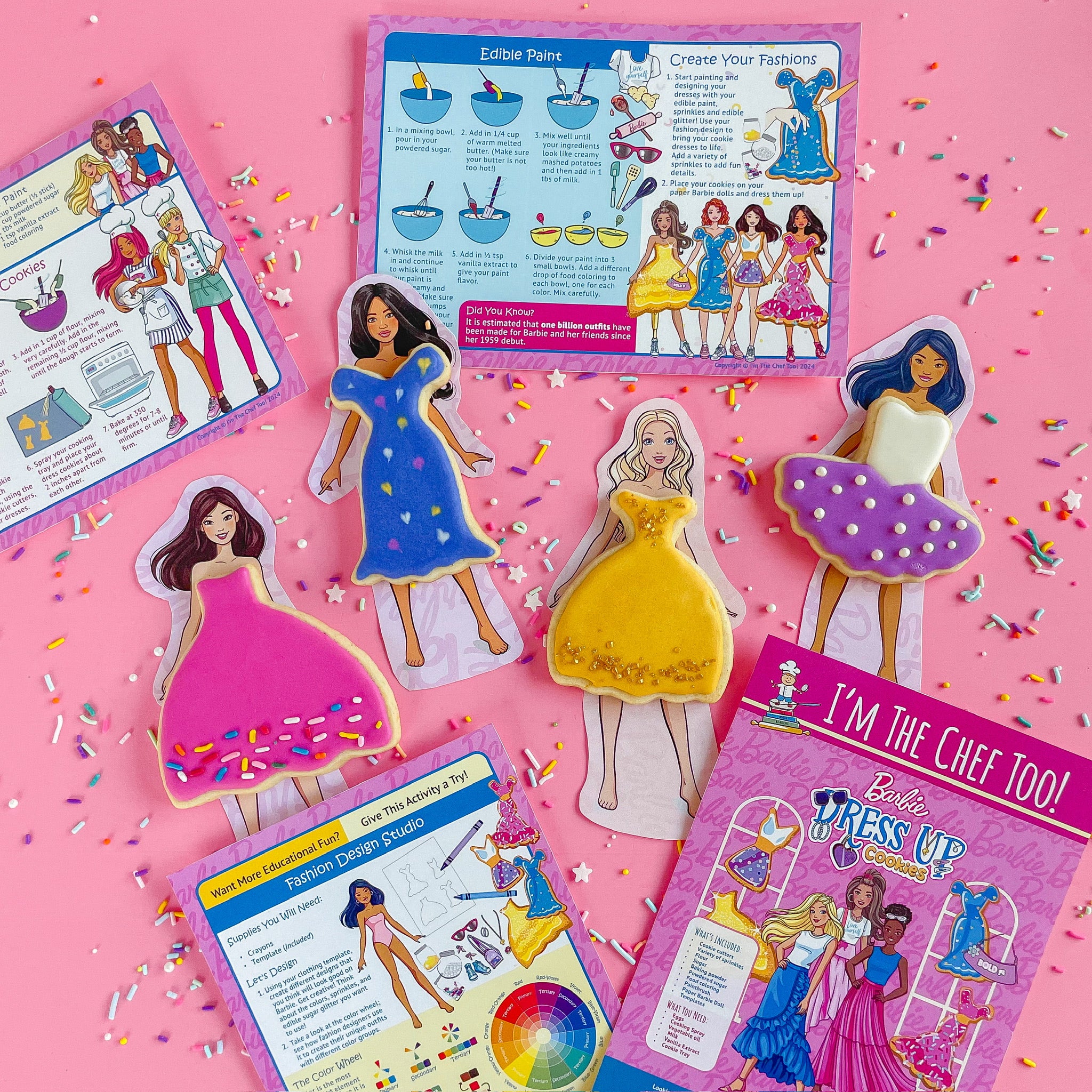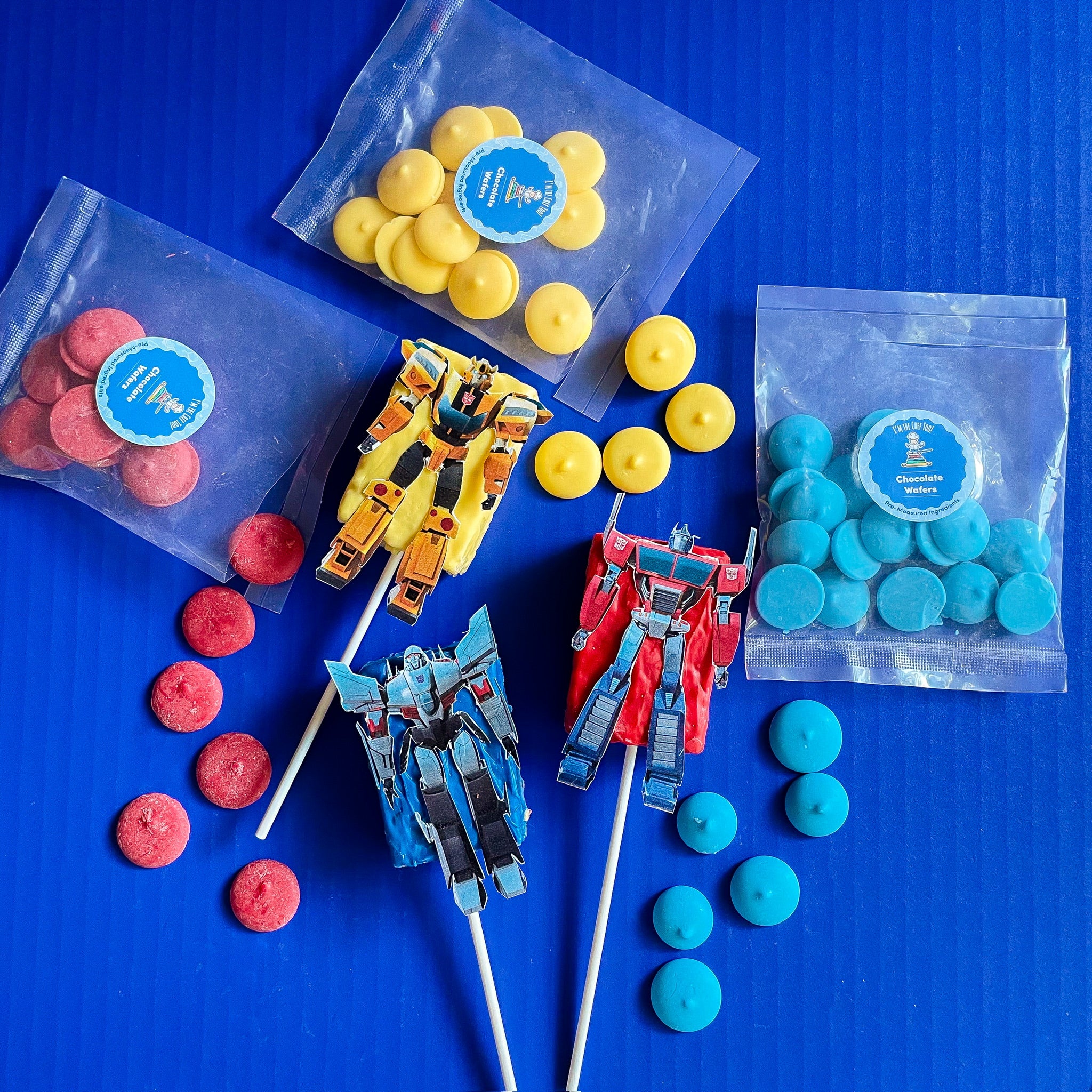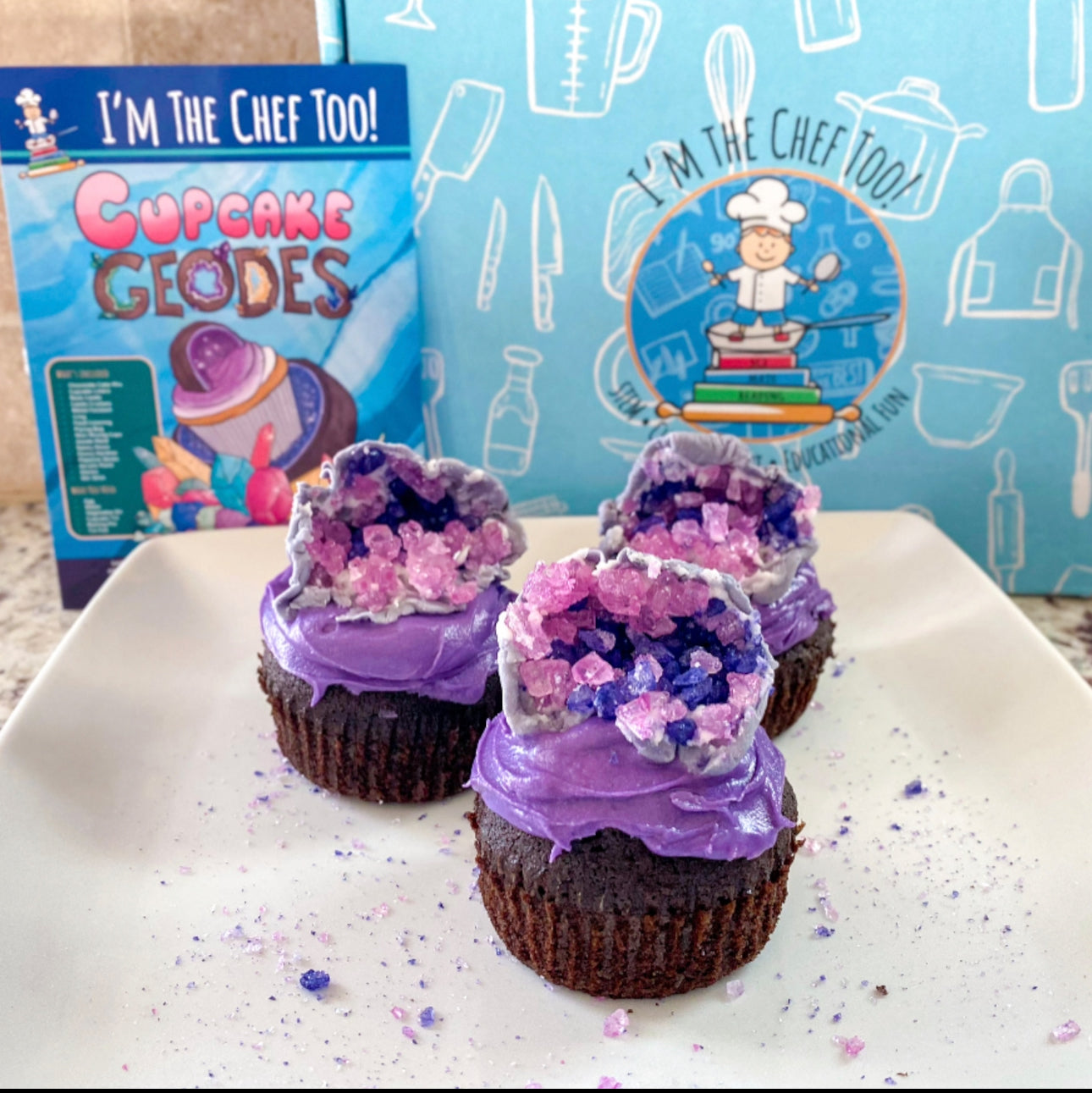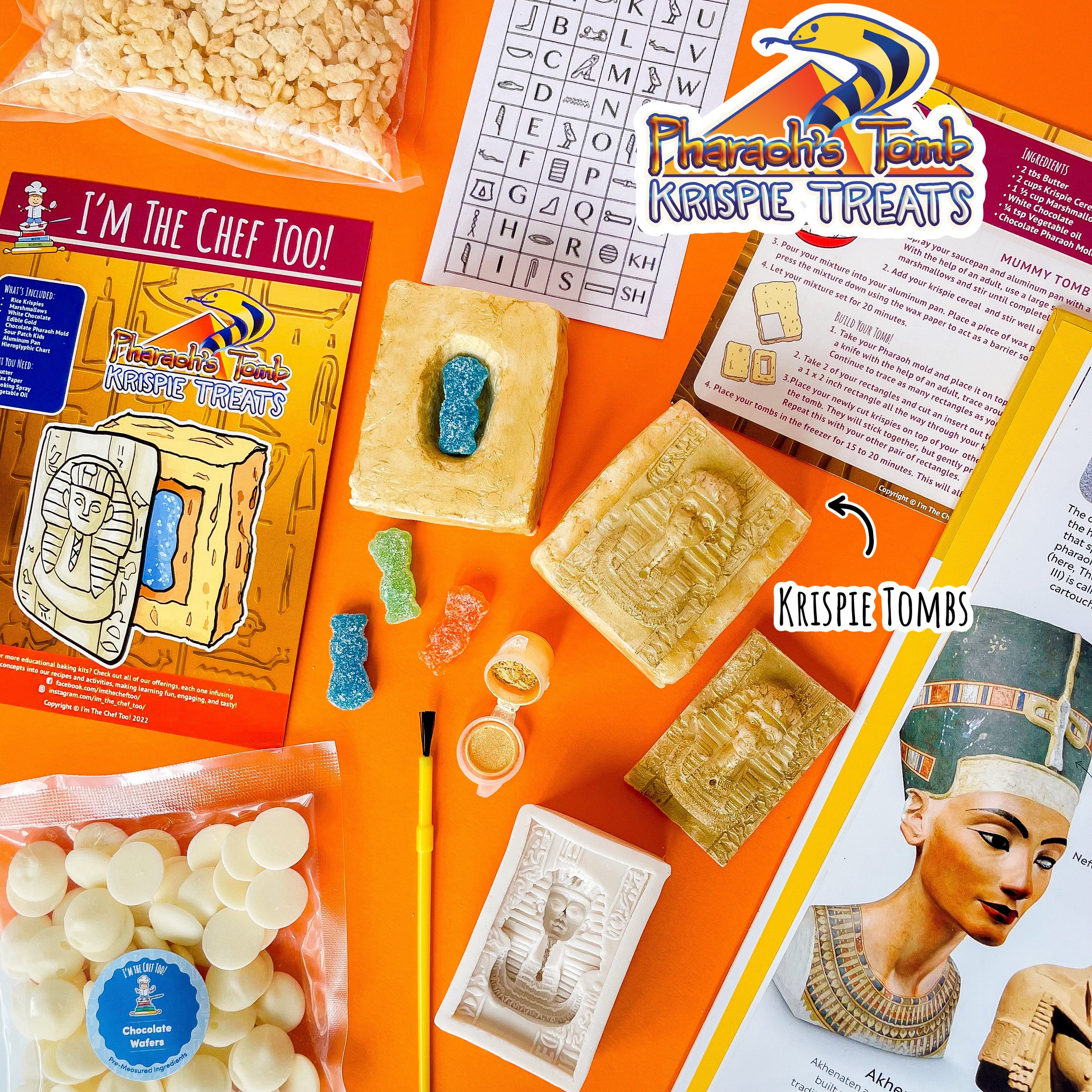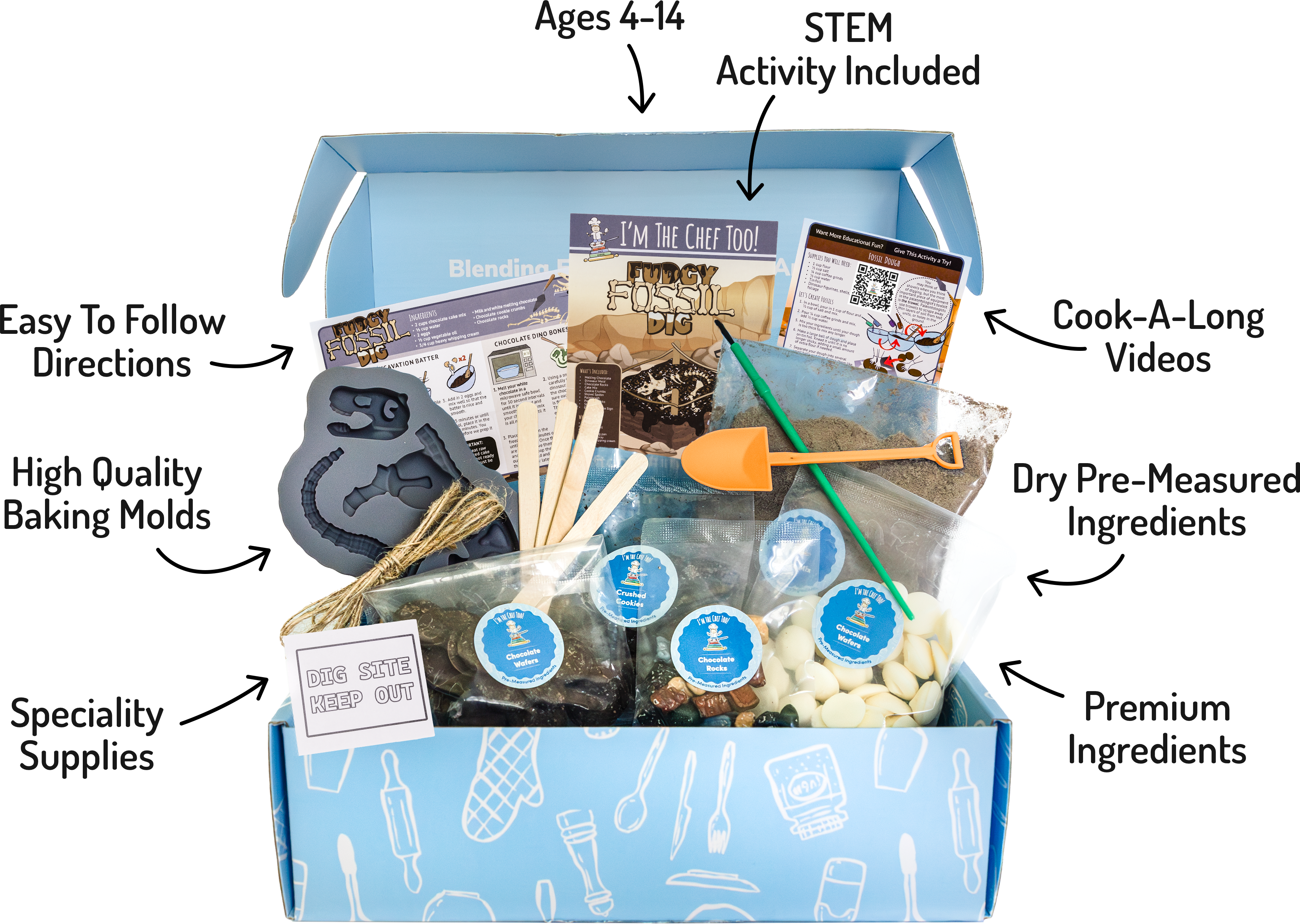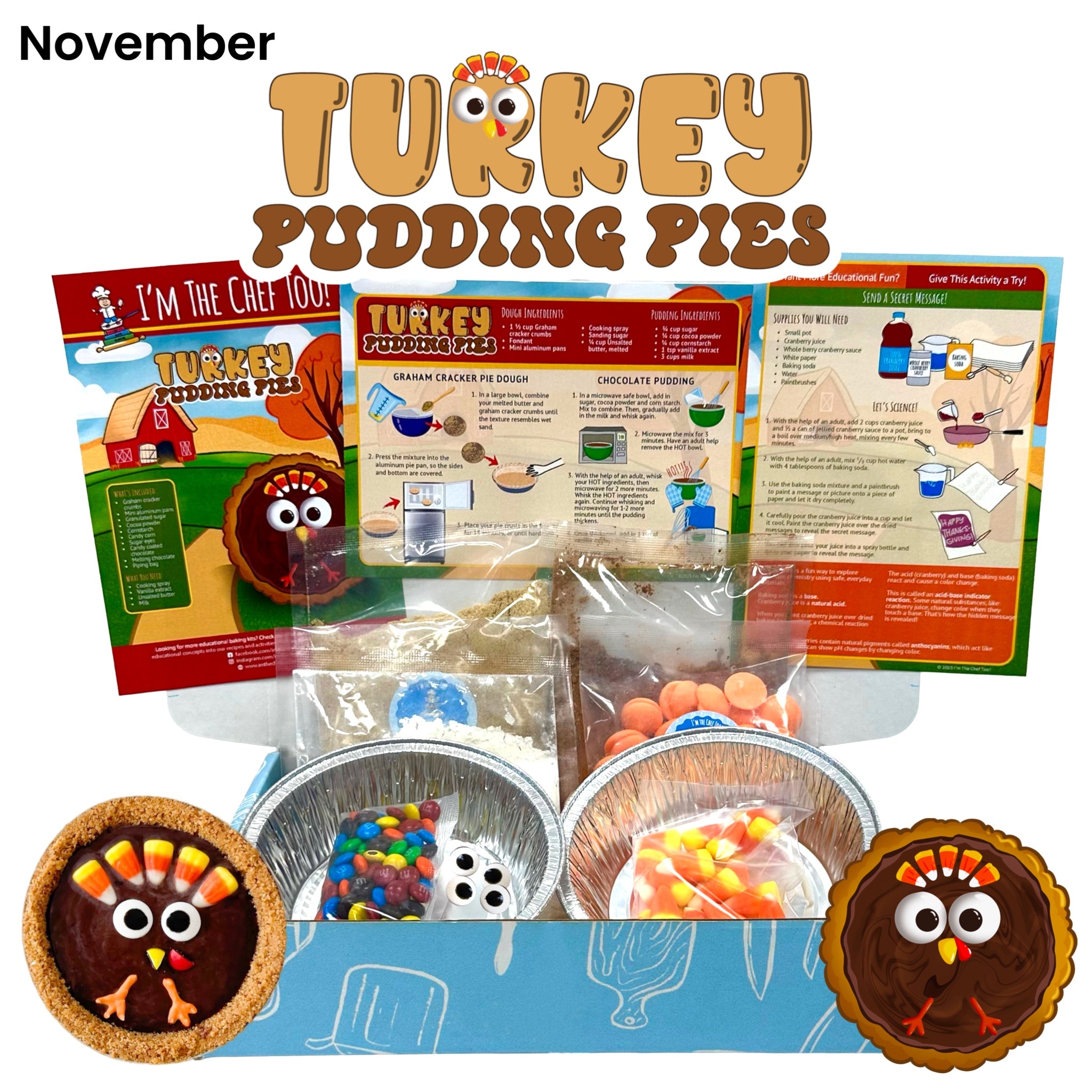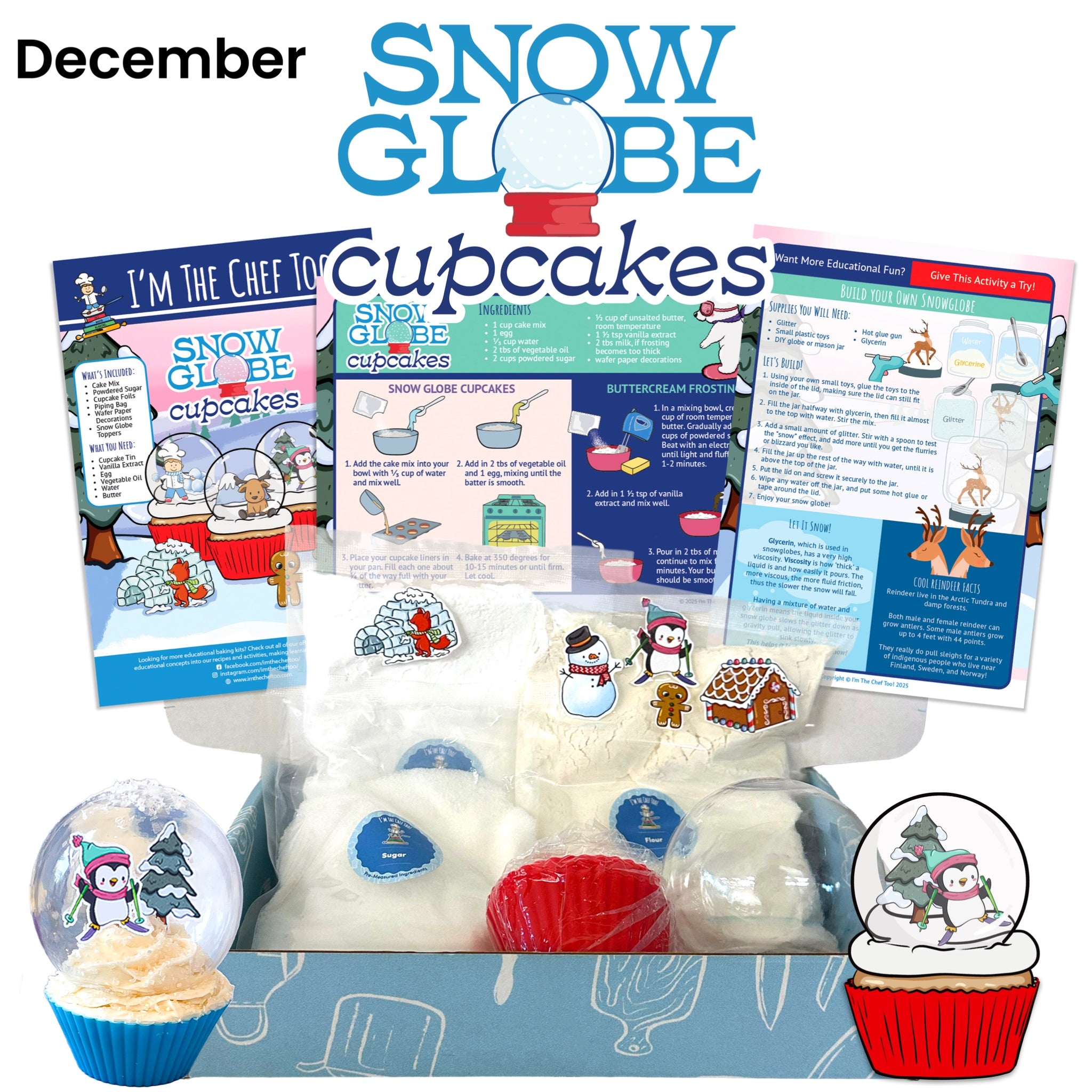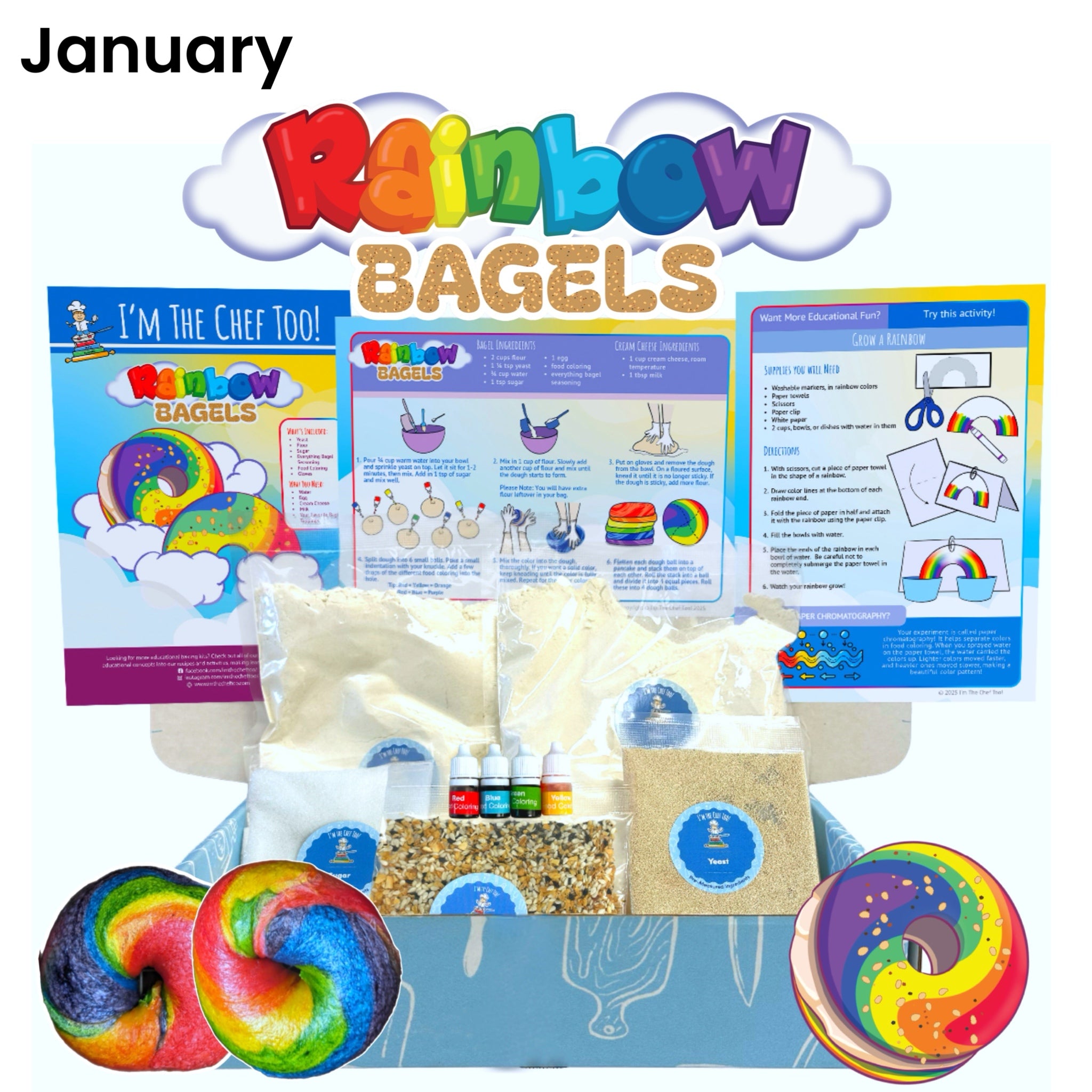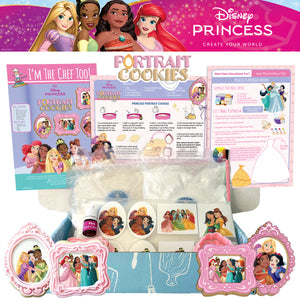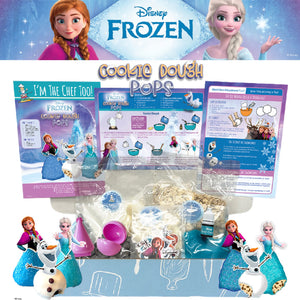Table of Contents
- Introduction
- Why Real Cooking is the Ultimate "Fun Cooking Game"
- The STEM Playground in Your Kitchen
- Beyond Recipes: Turning Meals into Missions
- Age-Appropriate "Cooking Games": Growing Skills in the Kitchen
- Essential Tools for Your Kitchen "Game Room"
- Overcoming Kitchen Challenges: Troubleshooting and Fun
- The "I'm the Chef Too!" Approach to Fun Cooking Games
- Real-World Examples of "Fun Cooking Games" at Home
- Making it a Family Affair: Bonding Through Culinary Play
- Conclusion
Remember that feeling of anticipation, waiting for a new challenge, a fresh quest, or a puzzle to solve? For many parents, the thought of "fun cooking games" might immediately conjure up images of digital screens, virtual kitchens, and characters like Papa Louie flipping burgers at warp speed. While online games certainly have their place, we're here to share a secret: the most engaging, educational, and genuinely fun cooking games aren't found on a tablet or computer. They're happening right in your kitchen, with real ingredients, real smells, and real-world skills taking center stage.
This post isn't just about recipes; it's about transforming your kitchen into an interactive laboratory, an art studio, and a culinary playground where learning comes alive. We’ll explore how hands-on cooking activities can become the ultimate "fun cooking games," sparking curiosity, building essential life skills, and creating unforgettable family memories, all without a screen in sight. We’ll dive into the incredible STEM (Science, Technology, Engineering, and Math) lessons hidden in every whisk and stir, offer practical tips for making cooking an exciting adventure for every age, and show you how to embrace the joyful chaos of edible exploration. By the end, you'll see why swapping virtual chef hats for real aprons is the most rewarding game you can play with your children.
Introduction
Have you ever noticed how children are naturally drawn to anything that feels like a game, a challenge, or a mystery to unravel? Whether it's building a towering block castle, solving a jigsaw puzzle, or embarking on a backyard scavenger hunt, their innate curiosity and desire for hands-on engagement are undeniable. Yet, in our increasingly digital world, it’s easy to fall into the trap of thinking that "fun cooking games" must involve a screen. We see popular online cooking simulations where kids virtually chop vegetables or manage a bustling restaurant, and while these can offer a fleeting distraction, they often lack the tangible, multi-sensory depth that truly ignites a child's learning.
At I'm the Chef Too!, we believe the kitchen is the original, and still the best, game room. It's a place where children aren't just passive observers but active participants in delicious discoveries. Our mission is to blend food, STEM, and the arts into one-of-a-kind "edutainment" experiences that go far beyond mere entertainment. We are deeply committed to sparking curiosity and creativity in children, facilitating genuine family bonding, and providing a truly screen-free educational alternative that builds real-world skills. This isn't about rote memorization or following rigid instructions; it's about teaching complex subjects through tangible, hands-on, and utterly delicious cooking adventures, all developed by mothers and educators who understand how children learn best. This blog post will guide you through transforming everyday cooking into exciting, educational "fun cooking games" that foster a love for learning, build confidence, and create joyful, lasting memories for your entire family.
Why Real Cooking is the Ultimate "Fun Cooking Game"
When we talk about "fun cooking games," it's crucial to shift our perspective from the digital screen to the tangible world of the kitchen. While online cooking games might offer quick gratification and a sense of virtual accomplishment, they simply cannot replicate the rich, multi-sensory experience that real cooking provides. Think about it: a virtual cake might look delicious, but it won't fill your home with the warm scent of vanilla, nor will your child feel the sticky texture of dough or the satisfying crunch of a fresh cookie.
Real cooking engages all five senses, providing a holistic learning experience that digital simulations can only hint at. Children touch ingredients, smell aromas, taste flavors, hear the sizzle of a pan, and see ingredients transform. This sensory engagement is vital for cognitive development, helping children build stronger neural connections and understand the world around them in a more profound way.
Beyond sensory input, hands-on cooking is a masterclass in developing crucial life skills. It's not just about following a recipe; it's about:
- Fine Motor Skills: Measuring, stirring, pouring, kneading, and decorating all require precise hand-eye coordination and strengthen small muscles.
- Problem-Solving: What happens if the dough is too sticky? How do we fix a lumpy batter? Cooking often presents mini-challenges that encourage creative solutions.
- Math Concepts: Fractions (half a cup, quarter teaspoon), counting (three eggs), measurement (grams, milliliters), and even basic geometry (cutting a pizza into wedges) are all woven into the fabric of cooking.
- Science in Action: Observing yeast rise, watching chocolate melt, or seeing ingredients change color and texture are all real-time chemistry and physics lessons.
- Reading Comprehension: Following a recipe step-by-step builds literacy skills and teaches children to decode instructions.
- Patience and Perseverance: Waiting for dough to rise or a cake to bake teaches valuable lessons in delayed gratification and sticking with a task.
- Creativity and Expression: From decorating cookies to inventing new flavor combinations, cooking offers an open canvas for artistic expression.
Unlike screen-based games that can lead to passive consumption and potential screen fatigue, real cooking fosters active participation and a sense of accomplishment. There’s an immense pride that comes from creating something tangible and delicious from scratch. This tangible outcome – a batch of cookies, a homemade pizza, or a beautifully decorated cupcake – offers immediate and satisfying feedback, boosting a child's confidence and encouraging them to explore further.
Furthermore, cooking together transforms into a powerful avenue for family bonding. It’s a shared activity that encourages communication, teamwork, and laughter. Imagine the joy of a parent and child working side-by-side, sharing stories, and making memories that extend far beyond the kitchen counter. This is the heart of what we champion at I'm the Chef Too! – fostering connections and creating meaningful experiences through the magic of food.
If you're ready to ditch the digital distractions and embrace real-world culinary adventures, we invite you to explore our unique approach. Ready for a new adventure every month? Join The Chef's Club and enjoy free shipping on every box. It's the perfect way to bring these invaluable "fun cooking games" directly to your home.
The STEM Playground in Your Kitchen
The kitchen isn't just for making meals; it's a dynamic, hands-on laboratory where the principles of STEM come to life in the most delicious ways. Every time you bake, mix, or measure, you're engaging in practical science, technology, engineering, and math. For children, these aren't abstract concepts but tangible, edible experiments.
-
Science: Cooking is essentially applied chemistry and physics.
- Chemistry: When you bake a cake, you're observing chemical reactions. The baking soda or baking powder reacts with acidic ingredients (like buttermilk or cocoa) to produce carbon dioxide bubbles, making the cake rise. This is the same principle at play in our Erupting Volcano Cakes kit, where a delicious chemical reaction makes the cakes bubble over! Melting chocolate, caramelizing sugar, or seeing eggs coagulate as they cook are all chemical transformations.
- Physics: Understanding heat transfer (conduction, convection, radiation) is key to cooking. Why does a metal pan heat up faster than a ceramic dish? How does an oven cook food evenly? Learning about states of matter (solids, liquids, gases) as ice melts or water boils is a direct physics lesson. Even the simple act of whisking demonstrates how air can be incorporated into liquids to change their texture.
- Technology: While we might not think of a kitchen as high-tech, it's full of tools that represent technological advancements. From blenders and food processors to ovens and thermometers, these tools are designed to make cooking more efficient and precise. Learning how to safely and effectively use kitchen gadgets teaches children about practical technology and its application in daily life. It’s also about understanding the "how-to" – following a recipe is a form of technological instruction.
-
Engineering: Every recipe is an engineering challenge. It's about designing a process, selecting the right materials (ingredients), and constructing a final product.
- Structural Integrity: Baking a layered cake requires understanding how to build stable structures. Will the frosting hold up? Is the cake strong enough to support another tier?
- Problem-Solving & Design: If a recipe isn't working, what adjustments can be made? How can we modify a dish to achieve a different texture or flavor? This iterative process of design, testing, and refinement is core to engineering.
- Measurement & Precision: Engineering relies on exact measurements, just like baking. A slight miscalculation in a cake recipe can lead to a flat, dense disaster!
-
Math: Math is arguably the most pervasive STEM element in the kitchen.
- Fractions and Ratios: Halving a recipe, doubling it, or understanding that 1/2 cup is larger than 1/4 cup are practical applications of fractions. Ratios are crucial for consistent results, like the ratio of flour to liquid in bread dough.
- Measurement: Using measuring cups and spoons accurately teaches standard units of measurement and the importance of precision.
- Counting and Sorting: Counting ingredients, sorting different types of pasta, or organizing spices are all foundational math skills.
- Time Management: Understanding baking times, cooling periods, and sequencing steps in a recipe teaches children about time and sequencing.
By framing these activities as "fun cooking games," we help children see that learning isn't confined to textbooks or classrooms. It's an active, engaging process that happens all around them, especially when they're making something delicious. This hands-on, experiential learning is at the core of I'm the Chef Too!'s philosophy, providing a unique approach to education that sparks genuine interest and builds a solid foundation for future learning.
Want to bring these amazing STEM lessons right to your kitchen table? Our thoughtfully designed kits make it simple and fun. Explore astronomy by creating your own edible solar system with our Galaxy Donut Kit, or dig into geology with our Erupting Volcano Cakes. Each experience is a complete adventure!
Beyond Recipes: Turning Meals into Missions
To truly transform cooking into "fun cooking games," we need to think beyond simply following a recipe. While recipes provide structure, the real magic happens when we infuse them with elements of play, challenge, and imaginative storytelling. This is where meals become missions, and the kitchen transforms into an immersive adventure zone.
Here are some ways to gamify your cooking experiences:
-
Themed Culinary Journeys: Pick a theme and build your cooking around it.
- "Dinosaur Dig" Dinner: Make "fossil" cookies by pressing toy dinosaurs into dough before baking, or create "lava" dip for "rock" (veggie) sticks.
- "Space Explorer" Snacks: Craft "galaxy" pizzas with colorful toppings or "moon rock" energy bites. Our Galaxy Donut Kit is a perfect example of how we turn astronomy into an edible adventure!
- "Under the Sea" Treats: Bake "mermaid tail" cookies or create blue jello "ocean" with gummy fish.
- "Mad Scientist" Experiments: Focus on the chemical reactions! Our Erupting Volcano Cakes are a fantastic way to explore acidity and bases with delicious results.
- Mystery Basket Challenge: Just like on cooking shows, present your child with a few "mystery" ingredients and challenge them to come up with a dish using them. This encourages creativity, resourcefulness, and adaptability. Start simple, like a few fruits and a yogurt, and challenge them to make a smoothie creation.
- "Top Chef" Competition (Friendly Edition): If you have multiple children, or even if it's just you and your child, turn a cooking session into a lighthearted competition. Who can decorate their cupcake most creatively? Who can make the neatest cookie cut-outs? Focus on effort and creativity, not perfection.
- Role-Playing and Storytelling: Assign roles! One child can be the "Head Chef," another the "Sous Chef," and another the "Ingredient Manager." Create a backstory for your meal – perhaps you're preparing a feast for a king, or a special snack for a tired astronaut returning to Earth. This adds a narrative layer that makes the process more engaging.
- Scavenger Hunt for Ingredients: Hide some of the non-perishable ingredients around the kitchen or pantry and give your child clues to find them before you start cooking. This adds an element of excitement and helps them learn where things are stored.
- Blindfolded Taste Test: After the cooking is done, set up a blindfolded taste test of different ingredients or even variations of your cooked dish. Can they identify the secret ingredient? This sharpens their sense of taste and encourages descriptive language.
- "Recipe Architect" Task: Once children are comfortable with basic cooking, challenge them to "architect" their own simple recipe. Start with something easy like a fruit salad or a sandwich, letting them choose the ingredients and steps. This fosters independence and understanding of recipe structure.
By reframing cooking in these playful ways, you’re not just making food; you’re creating an immersive learning experience. These "fun cooking games" transform chores into cherished memories and build a genuine love for the culinary arts and the STEM principles embedded within them.
Ready to embark on these exciting culinary missions without the hassle of gathering ingredients and recipes? Join The Chef's Club today! Each month, we deliver a new, themed adventure right to your door, complete with pre-measured dry ingredients and specialty supplies, making it effortless to turn your kitchen into a hub of "edutainment."
Age-Appropriate "Cooking Games": Growing Skills in the Kitchen
Just like any good game, "fun cooking games" need to be tailored to the players' skill levels. What's engaging for a toddler might be too simple for a pre-teen, and what's challenging for an older child might be overwhelming for a preschooler. The key is to introduce tasks gradually, ensuring safety always comes first, and celebrate every small victory.
Here's a guide to age-appropriate kitchen "game" levels:
Toddlers (Ages 2-3): Sensory Exploration & Simple Actions
At this age, cooking is primarily about sensory exploration and developing very basic motor skills. Safety is paramount – no sharp objects or hot surfaces.
-
Game Ideas:
- "Mix It Up!": Let them stir ingredients in a bowl (e.g., pancake batter, muffin mix). The goal isn't perfect mixing, but the act of stirring.
- "Pouring Practice": Provide small amounts of water or dry ingredients (like flour or rice) to pour from one cup to another. This builds hand-eye coordination.
- "Washing Station": Allow them to wash fruits and vegetables under cool, running water.
- "Sprinkle Fun": Let them sprinkle toppings (like sprinkles on cookies or cheese on pizza) with supervision.
- "Smell & Touch Game": Introduce different ingredients (e.g., a lemon, a cinnamon stick, a piece of bread) and encourage them to smell and touch, describing what they experience.
- Skills Developed: Sensory awareness, fine motor skills, hand-eye coordination, language development (describing textures, smells).
Preschoolers (Ages 4-5): Following Simple Steps & Counting
Preschoolers can handle slightly more complex tasks, focusing on one or two-step instructions and basic counting. Continue to prioritize safety.
-
Game Ideas:
- "Counting Chef": Count out ingredients (e.g., "How many eggs do we need?").
- "Measuring Master": Help them scoop and level dry ingredients using measuring cups. Start with larger measurements (e.g., 1 cup flour).
- "Spreading Spree": Use a butter knife or spatula to spread soft ingredients like jam, peanut butter, or frosting.
- "Dough Play": Knead simple dough, roll it out with a child-safe rolling pin, and use cookie cutters.
- "Tear & Rip": Practice tearing lettuce for a salad or ripping bread for croutons.
- Skills Developed: Basic math (counting, simple measurement), fine motor skills, following multi-step instructions, early independence.
Early Elementary (Ages 6-8): Reading Recipes & STEM Connections
This age group is ready to start reading simple recipes, understanding sequencing, and observing basic STEM principles in action.
-
Game Ideas:
- "Recipe Reader": Have them read out recipe steps.
- "Science Sleuth": Observe what happens when ingredients are mixed or heated. "Why did the cake get bigger?" (like with our Erupting Volcano Cakes!) "What makes the dough stretchy?"
- "Kitchen Detective": Identify different kitchen tools and explain their purpose.
- "Ingredient Sorting Challenge": Sort ingredients into categories (e.g., dairy, produce, grains).
- "Decorating Contest": Allow them to decorate cookies, cupcakes, or pizzas, encouraging creativity. Our Galaxy Donut Kit is perfect for this!
- Skills Developed: Reading comprehension, math (fractions, measurement), basic science observation, problem-solving, creativity, responsibility.
Pre-Teens (Ages 9-12): Independent Tasks & Culinary Creativity
Pre-teens can take on more independent tasks, use a wider range of tools (with supervision), and begin to experiment with recipes.
-
Game Ideas:
- "Solo Chef Challenge": Assign them a simple recipe to prepare mostly on their own (with adult oversight for heat and sharp tools).
- "Recipe Adaptation": Challenge them to modify a recipe – "How could we make this dish healthier?" or "What ingredient could we swap for a different flavor?"
- "Budget Bites": Give them a small pretend budget and challenge them to plan a meal using "affordable" ingredients.
- "Cultural Cuisine Quest": Research and cook a simple dish from a different culture.
- "Baking Science Deep Dive": Explore the role of different ingredients in baking (e.g., what does salt do? Why do we use baking soda AND baking powder sometimes?).
- Skills Developed: Advanced math (ratios, conversions), critical thinking, independence, planning, cultural awareness, deeper scientific understanding, creativity in problem-solving.
No matter the age, remember that the goal is to foster a love for learning and cooking, build confidence, and create joyful family memories. It’s not about perfection, but about the process and the shared experience. At I'm the Chef Too!, we design our kits with these developmental stages in mind, ensuring each adventure is engaging and appropriately challenging for young learners. Browse our complete collection of one-time kits to find the perfect starting point for your child's culinary journey.
Essential Tools for Your Kitchen "Game Room"
Just as a carpenter needs their hammer and saw, a young chef needs their tools! Equipping your kitchen "game room" with the right gear, and teaching children how to use it safely, is fundamental to making "fun cooking games" a success. You don't need a gourmet kitchen, just a few key items and a focus on safety.
Must-Have Kid-Friendly Tools:
- Kid-Safe Knives: There are many options available now that are designed for small hands and have blunt edges, allowing children to safely chop soft fruits, vegetables, and cheeses. This is a great way to build confidence and fine motor skills.
- Measuring Cups and Spoons: Essential for learning math concepts. Look for colorful, easy-to-read sets.
- Mixing Bowls: A variety of sizes, preferably with non-slip bottoms. Plastic or melamine bowls are great for younger children.
- Whisks and Spatulas: Small, child-sized whisks and silicone spatulas are perfect for little hands to stir, scrape, and mix.
- Rolling Pin: A small, lightweight rolling pin is ideal for flattening dough for cookies, pizzas, or even homemade pasta.
- Cookie Cutters: Fun shapes instantly turn dough into a creative activity, making the process more like a game.
- Aprons: Not just for cleanliness, an apron instantly makes a child feel like a real chef, adding to the "game" atmosphere.
- Sturdy Step Stool: Crucial for allowing children to safely reach the counter and sink.
Safety First: Rules for the Kitchen "Game Room":
Before any "fun cooking game" begins, establish clear safety rules. This isn't about stifling fun, but ensuring everyone stays safe and enjoys the experience.
- Adult Supervision is Key: This is the most important rule. An adult should always be present, especially when heat or sharp objects are involved.
- Hand Washing: Make it a routine and a fun ritual – sing a song while scrubbing!
- No Touching Hot Surfaces: Teach children about "hot zones" on the stove and oven. Use oven mitts together.
- Knife Safety: Always teach proper knife grip and cutting techniques. For younger children, start with plastic knives and soft foods. Emphasize cutting away from the body.
- Clean Up as You Go: Instill the habit of wiping spills immediately and putting away tools. This teaches responsibility and keeps the kitchen safe.
- Hair Tied Back: Long hair should always be tied back to prevent it from getting into food or near flames.
- Taste Testing Rules: Teach children to ask permission before tasting anything, especially raw ingredients like dough with raw eggs.
Setting up your kitchen as a welcoming and safe "game room" empowers children to explore, experiment, and learn without unnecessary risks. It communicates that their participation is valued and that cooking is an activity to be respected and enjoyed.
At I'm the Chef Too!, we understand the importance of both fun and safety. Our kits are designed to guide you through exciting activities with clear instructions, making it easier to manage the process and focus on the joy of creating together. We provide pre-measured dry ingredients and specialty supplies, reducing the need for extensive prep and allowing you to jump straight into the "fun cooking games" with confidence. If you're looking for a convenient way to kickstart these adventures, consider a subscription to The Chef's Club – a new themed kit delivered monthly, ensuring continuous culinary exploration.
Overcoming Kitchen Challenges: Troubleshooting and Fun
Even the most exciting "fun cooking games" can hit a snag. A spilled ingredient, a burnt cookie, or a sudden disinterest can turn a joyful experience into a frustrating one. But just like in any game, overcoming challenges is part of the fun and a vital learning opportunity. As parents and educators, we know that setting realistic expectations is key. Not every experiment will be perfect, and that's okay!
Here's how to troubleshoot common kitchen challenges and keep the fun alive:
-
The Mess Monster: Yes, cooking with kids can be messy. Flour dusts the counter, batter drips, and sprinkles somehow end up everywhere.
- Solution: Embrace it! View mess as a sign of engagement. Lay down newspaper or a large placemat. Have a designated "clean-up crew" (the kids!) with damp cloths ready. Make clean-up part of the "game" – who can wipe their station cleanest? Remember, the learning and bonding are worth a little extra scrubbing.
- Tip: Pre-measured ingredients, like those found in our Chef's Club boxes, can significantly reduce the potential for spills and excess mess, making the experience smoother from the start.
-
The "Oops!" Moment (Mistakes Happen): A forgotten ingredient, an over-mixed batter, or a slightly burnt edge.
- Solution: Frame mistakes as learning opportunities. "Oh, we forgot the baking powder! What do you think will happen to the cake?" or "This cookie is a little too brown. What could we do differently next time?" This teaches resilience and problem-solving. It's about the process, not just the perfect outcome. Sometimes, a "mistake" can even lead to a fun, unexpected discovery!
-
The Picky Eater Predicament: Your child helped make it, but now they refuse to try it.
- Solution: No pressure! The goal isn't always to get them to eat everything they make, but to engage them in the process. Studies show that children are more likely to try foods they helped prepare. If they don't want to eat it, encourage them to offer it to others, or simply try a tiny "adventure bite." Celebrate their participation in the making, regardless of consumption. The exposure itself is valuable.
-
Short Attention Spans: Kids can lose interest mid-task, especially if there's a lot of waiting involved (e.g., baking time).
- Solution: Break tasks into smaller, manageable "missions." Have other activities ready for downtime (e.g., drawing while the cake bakes). Involve them in every step possible, even if it's just watching the oven light. Keep the energy positive and enthusiastic. Our kits are designed with engaging steps to keep little hands and minds busy throughout the process, from mixing to decorating.
-
Frustration and Meltdowns: When things don't go as planned, or a task is too difficult.
- Solution: Offer support and encouragement. "It's okay to feel frustrated! Let's try this together." Break down the difficult step into even smaller parts. Remind them that learning takes practice. Focus on effort and persistence over immediate success.
-
The "I'm Bored" Syndrome: When the initial excitement wears off.
- Solution: Introduce a new "game" element. "Okay, now for our secret ingredient challenge!" or "Let's see who can make the funniest face with their dough!" Change up the pace, put on some music, or tell a story related to the food you're making.
Remember, the true value of these "fun cooking games" lies not in culinary perfection, but in the life skills learned, the bonds strengthened, and the joyful memories created. At I'm the Chef Too!, we are committed to making these experiences accessible and enjoyable for families, providing carefully curated kits that minimize common pain points and maximize the fun. Our approach is about fostering a love for learning through hands-on discovery, one delicious adventure at a time.
The "I'm the Chef Too!" Approach to Fun Cooking Games
At I'm the Chef Too!, we don't just provide recipes; we craft immersive, multi-sensory "edutainment" experiences that redefine what "fun cooking games" can be. Our philosophy is rooted in the belief that children learn best through doing, exploring, and engaging all their senses in activities that genuinely spark their curiosity. We are more than just a cooking kit provider; we are a partner in your child's educational journey, bringing together the dynamic worlds of food, STEM, and the arts into one seamless, delicious adventure.
What makes our approach unique and effective?
- Developed by Mothers and Educators: Our kits are not just random recipes; they are thoughtfully designed by a team that understands child development, learning styles, and the challenges parents face. This ensures that every activity is age-appropriate, genuinely educational, and truly engaging. We know how to break down complex concepts into digestible, hands-on steps that resonate with young minds.
- Blending Food, STEM, and the Arts: This is our core mission. We don't just teach kids to bake; we show them the science behind the rise of a cake, the engineering of a stable structure, and the artistic expression in decorating. For example, our Erupting Volcano Cakes kit isn't just about making dessert; it's a thrilling chemistry experiment that culminates in a delicious treat. Similarly, our Galaxy Donut Kit transforms astronomy into an edible art project, making learning about planets and stars a truly out-of-this-world experience.
- Screen-Free Educational Alternative: In an era dominated by screens, we offer a refreshing antidote. Our "fun cooking games" provide a tangible, hands-on experience that encourages interaction, creativity, and problem-solving in the real world. This direct engagement fosters deeper learning and reduces reliance on digital entertainment, promoting healthier habits and more meaningful family time.
- Convenience for Busy Families: We understand that life is busy. That's why our kits come with pre-measured dry ingredients and specialty supplies. This eliminates the hassle of grocery shopping for obscure ingredients, measuring everything out, and searching for complex recipes. We make it easy for you to jump straight into the fun, maximizing your quality time together.
- Fostering Curiosity and Creativity: Our kits are designed to be launchpads for discovery. While we provide clear instructions, we also encourage children to experiment, personalize, and think creatively. What happens if we add a different color? Can we arrange these toppings in a new way? This open-ended exploration sparks genuine curiosity and nurtures innovative thinking.
- Facilitating Family Bonding: At the heart of I'm the Chef Too! is the desire to bring families closer. Our kits are designed for collaborative fun, providing a shared activity that encourages communication, laughter, and the creation of cherished memories. These aren't just cooking lessons; they're opportunities for connection.
We don't promise your child will become a top scientist or a master chef overnight. Instead, we focus on the invaluable benefits of the process: fostering a lifelong love for learning, building confidence through accomplishment, developing key cognitive and motor skills, and, most importantly, creating joyful, lasting family memories around the kitchen table.
Ready to experience the unique blend of education and entertainment that only I'm the Chef Too! can provide? Give the gift of learning that lasts all year with a 12-month subscription to our STEM cooking adventures. Join The Chef's Club today and unlock a world of delicious discovery delivered right to your door.
Real-World Examples of "Fun Cooking Games" at Home
Let's translate the theory into practice. Here are some real-world "fun cooking games" you can play with your children in the kitchen, integrating STEM, creativity, and plenty of deliciousness. These examples show how simple activities can become rich learning experiences.
1. The "Chemical Reaction Cupcakes" Game (Science & Engineering)
- The Mission: Make cupcakes that rise perfectly and erupt with flavor!
-
How to Play:
- Ingredient Mystery: Before mixing, ask your child to identify ingredients that make things "bubble" or "grow" (baking soda, baking powder). Explain that these are like secret agents causing a chemical reaction.
- Measuring Precision: Emphasize the importance of exact measurements. Too much or too little of the "secret agents" can change the outcome. This is an engineering challenge – getting the structure right!
- Observation Station: As the cupcakes bake, watch them through the oven door. Point out how they are changing, puffing up, and transforming. "What do you see happening?" "Why do you think it's getting bigger?"
- Erupting Fun: Once cooled, fill the cupcakes with a "lava" surprise (e.g., jam or a fruit compote). If you want a real eruption, our Erupting Volcano Cakes kit is designed specifically for this, turning a simple baking activity into a memorable chemistry demonstration.
- Skills Learned: Chemical reactions, observation, measurement, precision, patience, cause and effect.
2. The "Edible Solar System" Game (Science & Art)
- The Mission: Create a delicious representation of our solar system using edible materials.
-
How to Play:
- Planet Research: Before you start, look at pictures of the planets. Discuss their colors, sizes, and unique features. Which planet is red? Which one has rings?
- Dough Shaping Challenge: Use different sized balls of dough (or even pre-baked cookies/donuts) to represent the planets. This is where the engineering of scale comes in.
- Artistic Decoration: Use various frostings, candies, and sprinkles to decorate each "planet" to resemble its real-life counterpart. This is where creativity and artistic expression shine.
- Orbital Arrangement: Once decorated, arrange the "planets" in their correct order from the "sun" (a large cookie or pancake). This reinforces basic astronomy.
- Our Solution: Our Galaxy Donut Kit provides all the tools and ingredients to make this specific "fun cooking game" easy and exciting, guiding children through the creation of their own cosmic treats.
- Skills Learned: Astronomy basics, scale, color recognition, fine motor skills, artistic expression, sequencing.
3. The "Fraction Pizza Puzzle" Game (Math & Engineering)
- The Mission: Design and create a pizza, then cut it into perfect fractions.
-
How to Play:
- Topping Tally: Before adding toppings, count how many different toppings you have. If you have four, discuss how each topping will cover ¼ of the pizza.
- Fractional Sections: Guide your child to put specific toppings on different "fractional" sections of the pizza (e.g., "Let's put pepperoni on one half, and mushrooms on the other half. Now, let's divide the mushroom half into two quarters and put olives on one of those quarters.")
- Cutting Challenge: Once baked, challenge them to cut the pizza into equal slices. "If we have 8 slices, what fraction is each slice?" This is practical geometry and division.
- Design & Stability: Discuss how to arrange toppings so they don't all fall off – a mini engineering challenge!
- Skills Learned: Fractions, geometry, counting, division, spatial reasoning, planning.
4. The "Sensory Dough Sculpting" Game (Art & Fine Motor Skills)
- The Mission: Create edible sculptures using a simple dough.
-
How to Play:
- Dough Making: Involve them in mixing the dough (e.g., simple sugar cookie dough or even edible playdough). Discuss the textures as you mix.
- Sculpting Challenge: Provide cookie cutters, small knives (kid-safe), and their hands to sculpt anything they can imagine – animals, letters, abstract shapes.
- Color Mixing: If using plain dough, divide it and add food coloring. Let them experiment with mixing colors to create new shades.
- Bake & Display: Bake their creations and then let them decorate. This is a chance for pure artistic expression.
- Skills Learned: Fine motor development, creativity, sensory exploration, cause and effect (how dough changes when baked).
These are just a few examples of how you can transform everyday cooking into engaging "fun cooking games." The beauty is that you can adapt any recipe or kitchen task into a playful learning experience. The key is to be present, enthusiastic, and open to discovery. For continuous inspiration and all the materials you need for these kinds of adventures, remember to check out our full range of one-time kits or consider the ultimate convenience of The Chef's Club subscription.
Making it a Family Affair: Bonding Through Culinary Play
While the educational benefits of "fun cooking games" are undeniable, one of the most precious outcomes is the profound family bonding that occurs. In our busy, often fragmented lives, shared experiences that foster genuine connection are invaluable. The kitchen, when approached as a "game room" or a creative hub, becomes a powerful space for this connection to flourish.
Think about the dynamics of cooking together:
- Teamwork and Collaboration: Every recipe is an opportunity to practice teamwork. One person measures, another stirs, a third gathers ingredients. Children learn to communicate, share tasks, and rely on each other to achieve a common goal – a delicious outcome. This collaborative effort builds a sense of unity and shared accomplishment.
- Communication Skills: Cooking provides a natural backdrop for conversation. You're discussing instructions, asking questions ("What do you think happens next?"), sharing observations ("Wow, look how fluffy this batter is!"), and simply chatting about your day. These organic conversations strengthen verbal communication and listening skills.
- Shared Laughter and Memories: Spills, unexpected outcomes, funny shapes, or even just the joy of licking the spoon – these moments become cherished family memories. The laughter shared over a wobbly cake or a uniquely shaped cookie creates a positive emotional connection to the activity and to each other. These are the stories that will be retold for years to come.
- Passing Down Traditions and Stories: Cooking is often tied to family traditions and cultural heritage. It's a chance to share stories about your own childhood, your favorite family recipes, or the origins of different foods. This intergenerational sharing enriches the experience and strengthens family identity.
- Building Confidence and Self-Esteem: When a child successfully contributes to a meal, their confidence soars. Knowing they helped create something tangible and delicious, and that their efforts are valued, builds immense self-esteem. This positive reinforcement encourages them to take on new challenges, both in and out of the kitchen.
- Unplugged Quality Time: In a world saturated with digital distractions, cooking together offers a truly screen-free zone. It's an opportunity to be fully present with one another, focusing on a shared, tangible activity. This dedicated, unplugged time is crucial for strengthening family bonds and fostering deeper relationships.
At I'm the Chef Too!, we wholeheartedly embrace this aspect of culinary exploration. Our entire philosophy is built around the idea of "edutainment" experiences that bring families together. We understand that while the STEM lessons are important, the laughter, the shared effort, and the creation of lasting memories are equally, if not more, valuable. That's why our kits are designed to be complete, engaging experiences that make it easy for busy families to connect over a fun, educational activity without the stress of planning and prep.
Imagine the joy of your child proudly presenting their homemade Erupting Volcano Cakes or their cosmic Galaxy Donut Kit creations, knowing you shared every step of that adventure together. These are the moments that truly matter. Ready to make more of these magical memories with your family? Join The Chef's Club and let us deliver a new, exciting "fun cooking game" to your doorstep every month, complete with free shipping and all the specialty ingredients you'll need.
Conclusion
We've journeyed through the vibrant world of "fun cooking games," moving beyond the fleeting entertainment of digital screens to embrace the rich, multi-sensory, and profoundly educational experiences that unfold in your very own kitchen. We've seen how hands-on cooking is not just about preparing food, but about igniting curiosity, fostering creativity, and building essential STEM and life skills through delicious, tangible adventures. From the chemistry of a rising cake to the geometry of a pizza slice, and the art of decorating a galaxy donut, your kitchen is truly the ultimate playground for learning.
More than just skill development, these culinary "games" are powerful catalysts for family bonding. They create a space for teamwork, communication, shared laughter, and the kind of unplugged quality time that builds lasting memories. As mothers and educators, we at I'm the Chef Too! are passionate about providing these unique "edutainment" experiences, designed to be both incredibly fun and deeply educational, making it easy for you to turn everyday moments into extraordinary learning opportunities.
The journey of discovery is a continuous one, and we believe every child deserves the chance to explore, create, and learn in the most engaging ways possible. If you're ready to transform your kitchen into a hub of innovation, creativity, and delicious family fun, we invite you to embark on an ongoing adventure with us.
Ready to bring the ultimate "fun cooking games" directly to your home every month? Don't miss out on the joy, the learning, and the unforgettable memories. Join The Chef's Club today! Choose from our flexible 3, 6, or 12-month pre-paid plans, perfect for gifting or long-term enrichment, and enjoy the convenience of a new, complete STEM cooking adventure delivered to your door with free shipping in the US. Let's create, learn, and make delicious memories together!
FAQ
Q1: What are "fun cooking games" for kids?
A1: While many online games are labeled "cooking games," at I'm the Chef Too!, we define "fun cooking games" as engaging, hands-on activities in a real kitchen. These are structured culinary adventures that blend food preparation with STEM (Science, Technology, Engineering, Math) concepts and artistic expression. They involve real ingredients, foster practical skills, and encourage family bonding, offering a screen-free educational alternative to digital games.
Q2: How do real cooking games benefit my child more than online cooking games?
A2: Real cooking games offer multi-sensory engagement (touch, smell, taste, sight, sound), which is crucial for cognitive development. They build fine motor skills, problem-solving abilities, math concepts (measurement, fractions), and scientific understanding (chemical reactions). Unlike passive screen time, hands-on cooking fosters active participation, boosts confidence through tangible accomplishments, and strengthens family connections through shared experiences.
Q3: What kind of STEM lessons can my child learn through cooking?
A3: Cooking is a fantastic STEM laboratory!
- Science: Observing chemical reactions (like yeast rising or baking soda reacting), understanding states of matter (melting, boiling), and heat transfer. For example, our Erupting Volcano Cakes kit teaches about acids and bases.
- Technology: Learning to use kitchen tools like mixers, ovens, and thermometers safely and effectively.
- Engineering: Designing recipes, building structures (like a layered cake), and problem-solving when things go wrong.
- Math: Practicing fractions, measurements, counting, ratios, and time management. Our Galaxy Donut Kit incorporates concepts like scale and sequencing.
Q4: Are these cooking games suitable for all ages?
A4: Yes, "fun cooking games" can be adapted for various age groups. For toddlers, focus on sensory exploration and simple actions like stirring. Preschoolers can practice counting and simple measuring. Early elementary children can read simple recipes and observe basic science. Pre-teens can take on more independent tasks and experiment with recipe modifications. Adult supervision is always implicitly understood and essential for safety, especially with heat or sharp tools.
Q5: What kind of tools do I need to start playing "fun cooking games" with my kids?
A5: You don't need a gourmet kitchen! Essential kid-friendly tools include kid-safe knives, measuring cups and spoons, mixing bowls, small whisks and spatulas, a child-sized rolling pin, and cookie cutters. A sturdy step stool and an apron are also very helpful. Most importantly, establish clear safety rules, such as adult supervision, hand washing, and no touching hot surfaces.
Q6: How does I'm the Chef Too! make these cooking games easy for parents?
A6: We simplify the process by providing thoughtfully designed kits that include pre-measured dry ingredients and specialty supplies. This eliminates the need for grocery runs and extensive prep work, allowing families to jump straight into the fun and learning. Our kits are developed by mothers and educators, ensuring they are age-appropriate, genuinely educational, and foster family bonding.
Q7: My child is a picky eater. Will they still enjoy these cooking games?
A7: Absolutely! The goal is often more about engaging them in the process and building skills than about immediate consumption. Many studies show that children are more likely to try foods they helped prepare. Even if they don't eat it, the exposure, participation, and sense of accomplishment are incredibly valuable. We encourage celebrating their involvement regardless of whether they eat every bite.
Q8: How can I keep my child engaged if they have a short attention span?
A8: Break down tasks into smaller, manageable "missions." Introduce new "game" elements throughout the process, like a mystery ingredient challenge or a decorating contest. Have other quick activities ready for downtime (e.g., while something bakes). Keep the energy positive and make clean-up part of the fun. Our kits are designed with engaging, sequential steps to maintain interest.
Q9: How can I get started with I'm the Chef Too! for these fun cooking games?
A9: We offer two main ways to join the fun! You can browse our complete collection of one-time kits to pick specific adventures that appeal to your child's interests. For ongoing educational fun and convenience, we highly recommend subscribing to The Chef's Club. You'll receive a new themed STEM cooking adventure delivered to your door every month with free shipping in the US, making continuous learning and bonding effortless.



